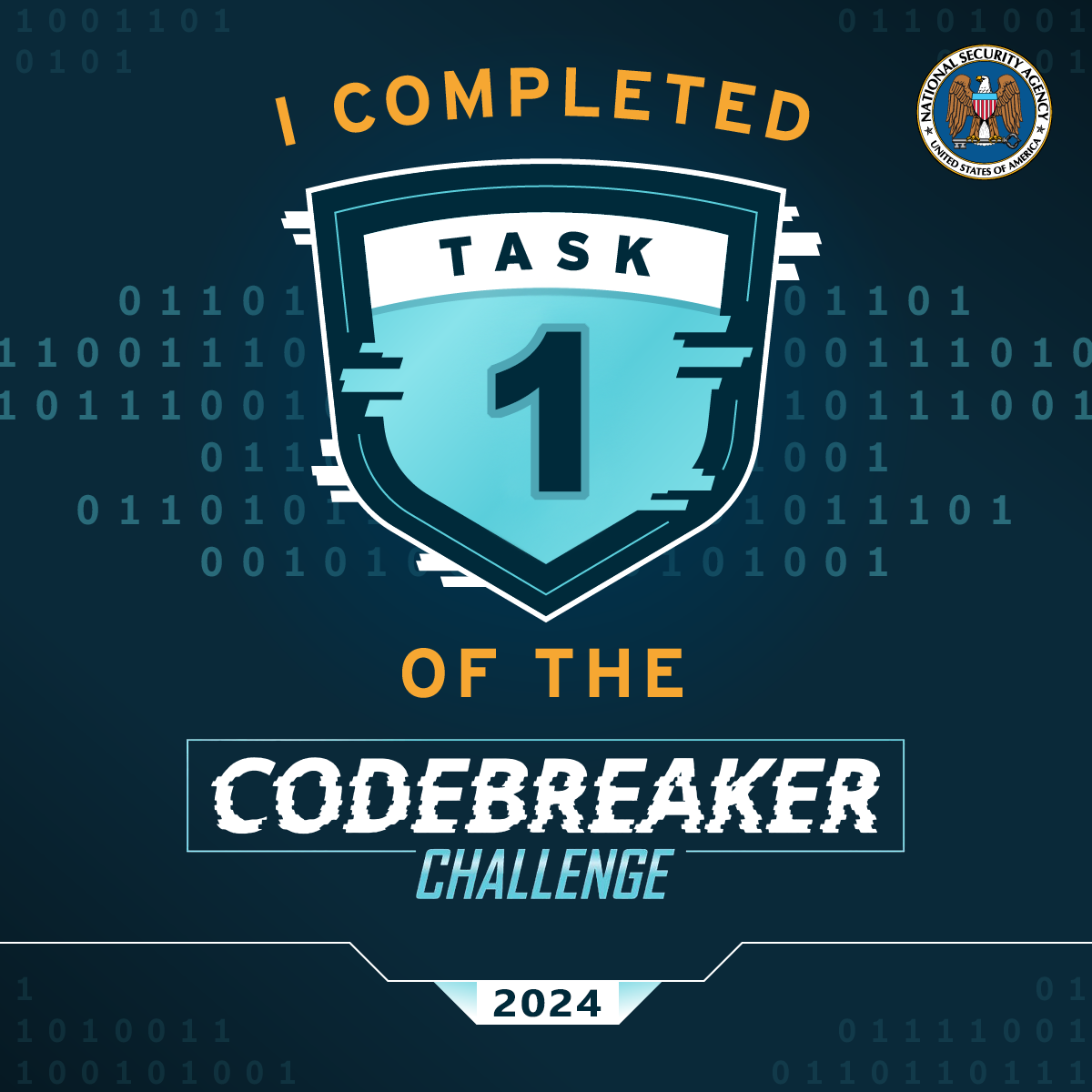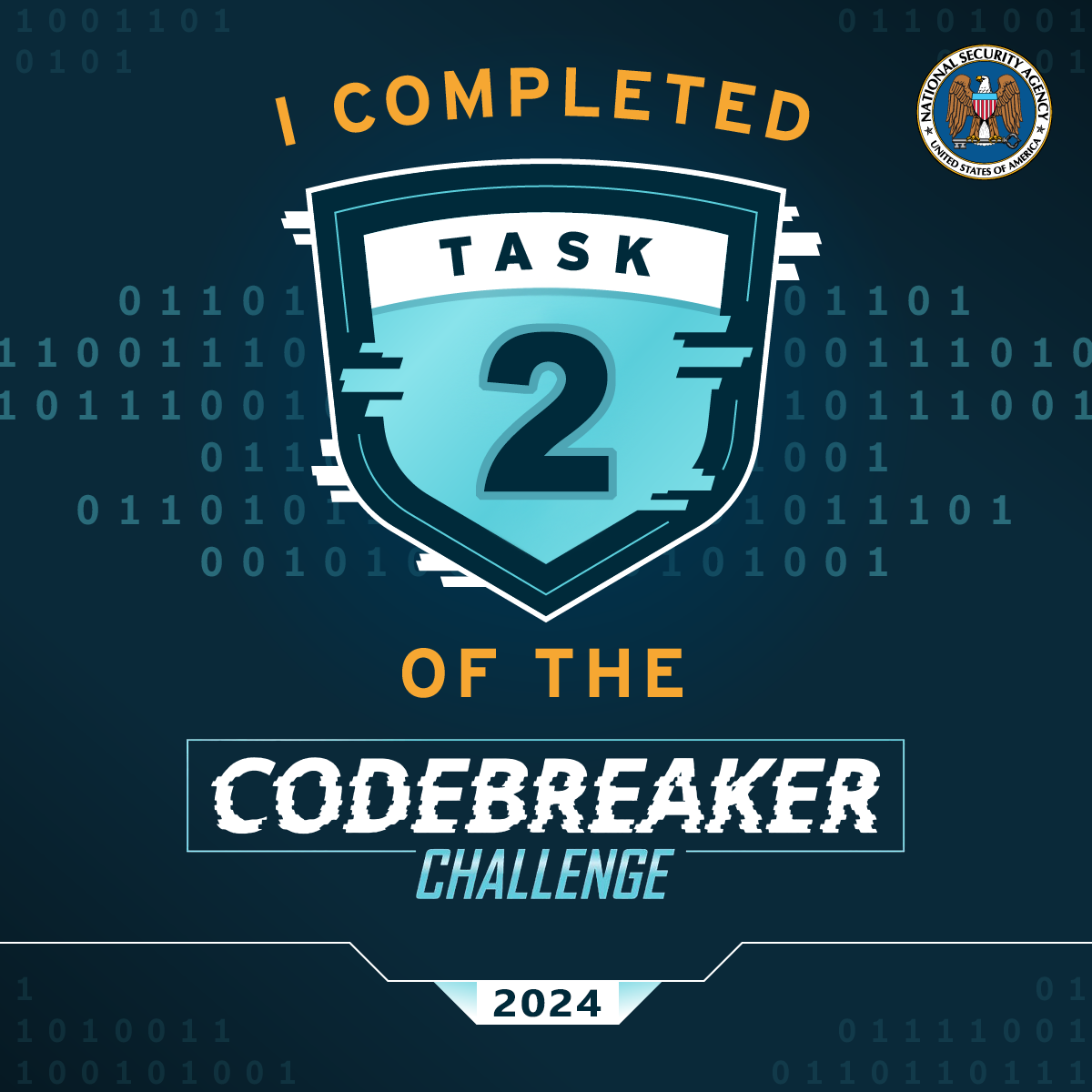NSA Codebreakers 2024
Task 1
$file shipped.db
-
Tried to open with OpenSQLite browser but couldn’t open it. Shows encrypted.
-
Then found out it is not an encrypted file:
$fcrackzip -v -u -D -p /usr/share/wordlists/rockyou.txt shipping.db
'mimetype' is not encrypted, skipping
'Configurations2/toolpanel/' is not encrypted, skipping
'Configurations2/progressbar/' is not encrypted, skipping
'Configurations2/statusbar/' is not encrypted, skipping
'Configurations2/toolbar/' is not encrypted, skipping
'Configurations2/floater/' is not encrypted, skipping
'Configurations2/popupmenu/' is not encrypted, skipping
'Configurations2/menubar/' is not encrypted, skipping
'manifest.rdf' is not encrypted, skipping
found id 6ecd93cd, 'shipping.db' is not a zipfile ver 2.xx, skipping
no usable files found
-
After Unzipping, tried to view content of content.xml: All Gibbrish
- Tried to reconstruct it in readable format:
$zip -r ../files.odt * -
Word & Libreoffice don’t show good format, not readable and cannot be analyzed
-
Reconstructing to Sqlite file using python script.
-
Finally reconstructed after trial and error.
- Found Guardian Armamenet a suspicious company from Thumbnails.png after Googling all companies names
Random Entry for a different addresss at No:899 which is suspicous
Boom Flag

Task 2
Create ZFS Pool on Ubuntu using following commands:
$lsblk
$sudo fallocate -l 1G /tmp/zfs-disk.img
$sudo losetup -fP /tmp/zfs-disk.img
$losetup -a
$lsblk
$sudo zpool create nkfipool /dev/loop46
$sudo zfs create nkfipool/rjfs
$zfs list -t snapshot
$zpool list
If directory is hidden:
$sudo zfs get snapdir nkfipool/rjfs
$sudo zfs set snapdir=visible nkfipool/rjfs
$sudo zfs get snapdir nkfipool/rjfs
Info on Pool:
$sudo zdb -vvv nkfipool/rjfs
Manually Recover each Snapshot SEQUENTIALLY using source GUID & Destination GUID:
View GUID:
$ for f in *; do file "$f"; done | cut -d':' -f1,4,5 | column -t -s ':'
$ sudo zfs receive nkfipool/rjfs > logseq24006643128753-i
Check directory of each recovered snapshot: :/nkfipool/rjfs/planning/pages
$ ls
contents.md 'Elliptic curve recovery.md' LLM.md 'token generation.md' 'ZFS snapshots.md'
'CUDA elliptic.md' golang.md todo.md tools.md
Do checksum of each file
Write Script to do checksum of each file, then print it:
#!/bin/bash
# Base directory where all logseq directories are stored
BASE_DIR="/nkfipool/rjfs/.zfs/snapshot"
# List of logseq directories
LOGSEQ_DIRS=(
"logseq11079254764090"
"logseq11652828730004"
"logseq11865316111135"
"logseq1275510227140"
"logseq169607977607"
"logseq1838778124435"
"logseq18584850428477"
"logseq211821980113211"
"logseq24006643128753"
"logseq259372600032543"
"logseq263292687127458"
"logseq269718728817"
"logseq27077118912783"
"logseq30280209123973"
"logseq307981931423438"
"logseq4015160425167"
"logseq73041633518013"
"logseq77311709316810"
"logseq81871640320073"
"logseq98931947620095"
)
# Iterate through each logseq directory
for logseq_dir in "${LOGSEQ_DIRS[@]}"; do
# Directory containing files
PAGES_DIR="$BASE_DIR/$logseq_dir/planning/pages"
# Check if the directory exists
if [ -d "$PAGES_DIR" ]; then
#echo "Processing files in $PAGES_DIR"
echo ""
# Iterate through each file in the pages directory
for file in "$PAGES_DIR"/*; do
if [ -f "$file" ]; then
# Print the SHA256 checksum of the file
sha256sum "$file"
fi
done
else
#echo "Directory $PAGES_DIR does not exist or is inaccessible."
echo ""
fi
done
Boom You’ve got all checksums
